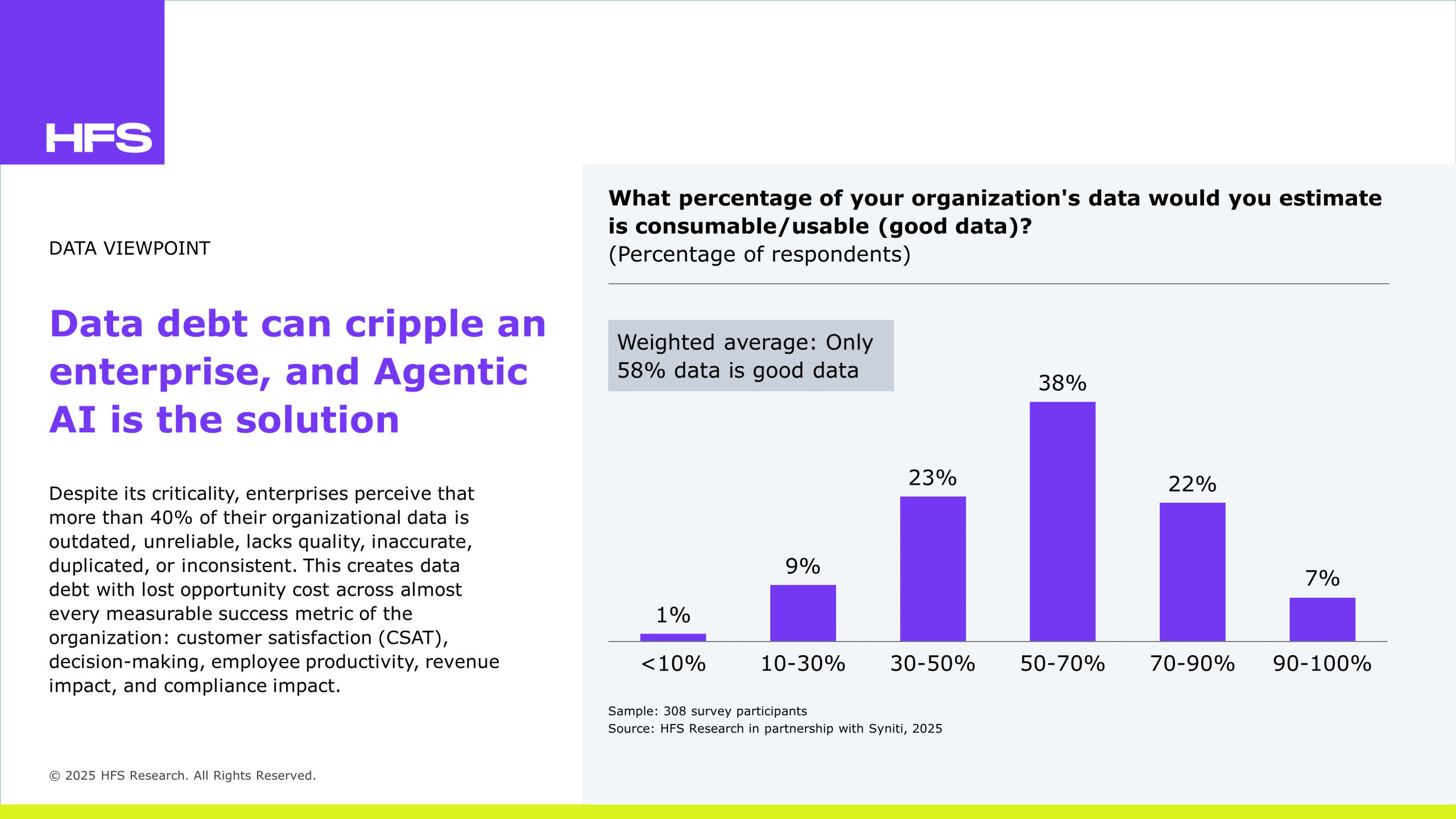
Data debt is a severe impediment on all fronts
- Respondents saw a decrease in Net Promoter Score (NPS) by an estimated 35% due to data quality issues.
- Bad data is estimated to affect 32% of data-driven decision-making processes.
- Employee productivity is estimated to be reduced by 33% because of the additional time needed to handle
poor-quality data.
- About 30% of data migration efforts are dedicated to resolving issues related to bad data.
- Roughly 31% of the data management budget is allocated to addressing data quality issues.
- Bad data costs respondents approximately 28% of their annual revenue.
- Bad data increased compliance costs by 26%.
Data debt refers to the accumulation of data quality, governance, and management issues that compound over time, creating impediments for organizational efficiency, decision making, and innovation. Agentic AI, with its ability to autonomously perceive, reason, and act on routine tasks, is a tremendously helpful tool in an enterprise’s initiatives around data modernization and governance. Agentic AI can:
- Enable automated and adaptive data quality control. Agentic AI can autonomously clean, validate, and monitor real-time data. It can detect errors, standardize formats, and enforce governance policies to prevent data debt from accumulating.
- Facilitate intelligent metadata and lineage management. These agents can dynamically manage metadata, track data lineage, and map dependencies across silos, improving data discoverability, regulatory compliance, and long-term maintainability.
- Amplify proactive debt remediation and scalable efficiency. Agentic AI can help organizations identify where data debt is building, recommend fixes, and scale data quality efforts as data volumes grow, freeing up human resources and reducing bad data’s operational ‘interest’.
- If not implemented carefully, agentic AI could inadvertently add to data debt, especially if AI-generated corrections or integrations introduce new errors or inconsistencies
- However, several elements of caution must be observed before letting AI agents loose on corporate data.
- While agentic AI can automate many aspects of data management, human oversight remains crucial to ensure that AI actions align with organizational goals and compliance requirements and to validate AI-driven changes.
- Integrating agentic AI into environments with significant legacy data debt is challenging. Outdated systems and architectures may limit the effectiveness of agentic AI or require substantial upfront remediation
- Poorly governed or fragmented data ecosystems can hinder agentic AI’s ability to operate effectively, making robust data governance frameworks essential
The Bottom Line: Agentic AI can transform data debt from a hidden liability into a manageable asset by automating quality control, governance, and remediation at scale.
However, enterprise leaders must approach implementation with clear governance, strategic oversight, and cross-functional alignment to avoid trading one form of debt for another. Treat agentic AI not as a silver bullet but as a disciplined enabler of long-term data resilience.
